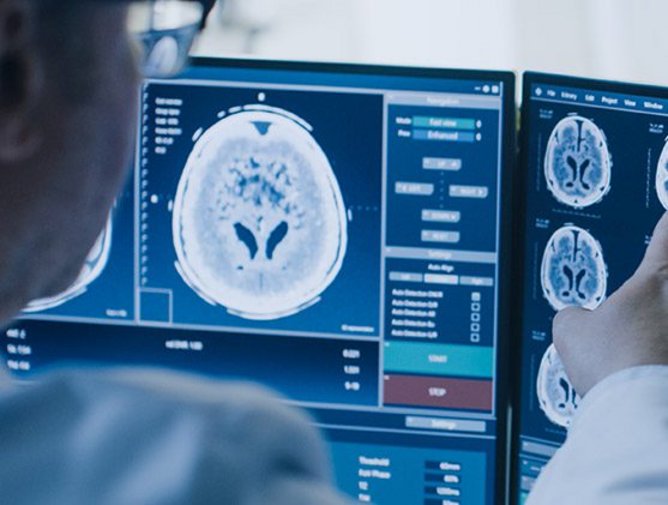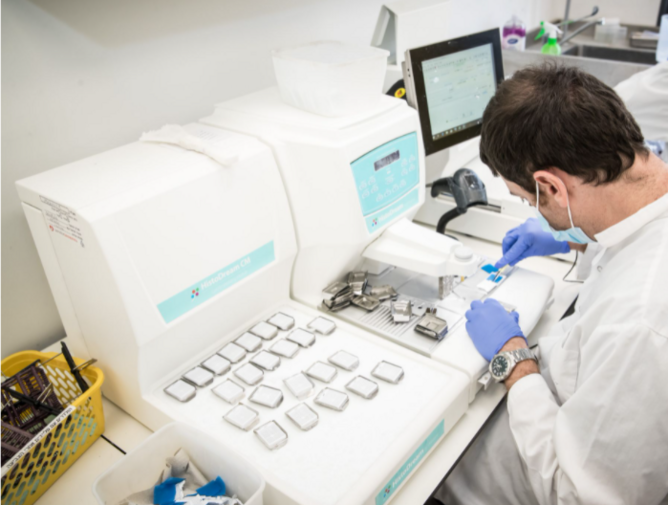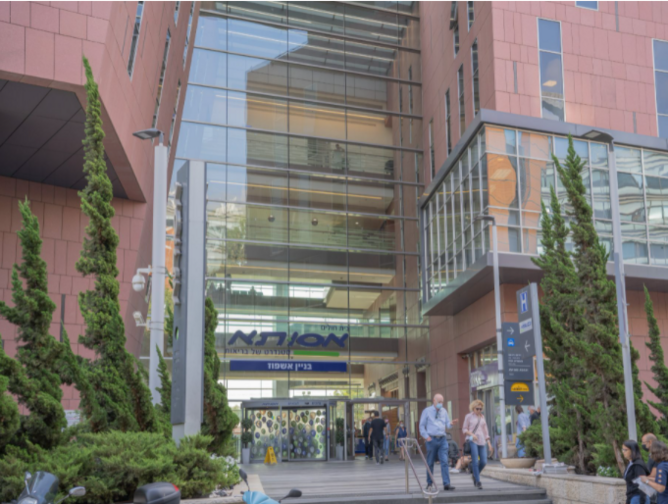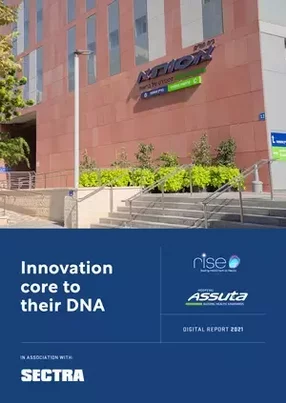Assuta Medical Centers operates Israel's biggest chain of private hospitals and medical centres, where 2,400 specialised physicians are providing care to over 1.5 million patients a year. It operates elective activities at large-scale, performing over 100,000 surgical procedures and over 800,000 diagnostic tests annually, as well as specialised treatments to tens of thousands of patients, mainly around diagnostic oncology, ophthalmology and fertility.
Assuta’s strategy aims to always be at the vanguard of modern healthcare services. Gidi Leshetz, Assuta's Chief Executive Officer, says that "innovation is at the core of Assuta's DNA. We always strive for excellence and for setting the top standards of care and patient experience. To achieve these goals, we have to continuously innovate ourselves, while looking for new technologies and ways to improve our existing services and to offer new breakthrough services, which will later become the standard of care in the Israeli healthcare system."
RISE – Scaling HealthTech at Assuta
To this end, Assuta established RISE, its vehicle for expediting the development of applicable medical innovations, led by Dr. Michal Guindy and Daniel Rabina. RISE fosters the rapid development, clinical testing and scale-up of medical technologies, within Assuta’s clinical workflows.
Rabina describes the role of RISE as "the oil in the engine of our organisation. We spark new innovation activities, and we run them until we can hand them over to another player in the organisation, which could be a clinical player or a tech player."
RISE’s aim is to ensure collaborations with R&D partners are smooth. As Rabina explains, sometimes it's difficult for a healthcare organisation, especially a hospital, to collaborate with a young company or with R&D units, because they work in completely different frameworks. "We sometimes own a project and take it end-to-end, and sometimes we're just holding the hand of someone else in the organisation who owns the project. But basically, we're the ones that are pushing the collaborations, and we do it because we want to make our clinical environments more accessible for technology developers and therefore provide better healthcare services."
Dr. Guindy explains that physicians at Assuta are coming from different medical education and experience backgrounds and therefore tend to bring different approaches to a procedure in the same department. ”The potential for medical R&D that derives from our way of work is tremendous. Developers working in our institutions are gaining a variety of insights from clinical opinion leaders, representing multiple approaches and perspectives. When combining it with our large traffic of patients, the result is that working with RISE is sometimes similar to working with three or four major hospitals, under one roof."
Developing Artificial Intelligence in clinical settings
Each of Assuta's workflows runs from a single centralised data centre. "This allows RISE to take a part in the rapidly evolving world of clinical AI and analytical tools,” Rabina says. "We've built strong IT infrastructures and a network of innovation around us with many startups and tech companies that are developing, testing and implementing new AI products within our clinical workflows."
RISE recently announced its AI innovation centre, dedicated to making Assuta’s data and clinical workflows more accessible for collaborations with AI researchers and developers. The AI centre includes a secure advanced image and data processing platform, developed and operates in collaboration with NVIDIA and AWS, which enables accelerated product development in collaboration with Assuta’s clinicians. There are currently at least 10 AI research studies ongoing in the area of radiology alone.
Additionally, RISE is leading the way in advanced technologies for surgical procedures. Surgeons at Assuta are pioneering the use of robotics, both small robotic devices such as the O-ARM for spinal surgery, and the Da Vinci robot for larger procedures. “The best knee surgeons are often using robotics," Guindy says. "The results are very interesting – the operation time is shorter and the satisfaction is higher. We are starting to see more AI and automation around surgery and robotics and we are putting great efforts into leveraging our knowledge and experience for pushing this field into new exciting directions."
Digital Pathology as a showcase for innovation at scale
One of Assuta’s new developments is found in the pathology lab it recently acquired, PathoLab Diagnostics, with the aim of transforming the services it provides to tens of thousands of patients yearly into digital pathology. "We are looking to change the landscape of pathology for two main goals. One is to promote best quality services for our patients" Guindy explains. "The other is to leverage this new layer of digital data for developing and using new tools, that affect the workflow and support our clinical services.”
This benefitted them during the pandemic, as it meant clinicians were able to view samples from home. It also ensures quality control and opens up the possibility of using AI to assist with scanning the images to detect anomalies. This potential starts to bear fruit when now deploying their first operational AI, with a decision support tool for pathologists that diagnoses different kinds of cancer.
Digitising the process required a big change to the way pathologists work. "We needed to make sure that our pathologists undergo a form of transformation, because there really is a big difference between working with a microscope and working with a computer."
Assuta partnered with Sectra, a Swedish medical technology company. "We chose Sectra because their solution is open and enables us to integrate with other IT vendors for enabling access to pathological images and clinical data on a single platform, Guindy says. "This is critical for providing the best possible diagnosis. We are putting strong efforts for our clinicians to be able to join information from various sources and have a holistic view of the patient as part of their diagnostic decision making.
"Sectra worked with us on installing the solution. They understand the need to provide service to the clinicians – which is the key to success for this whole transformation. Pathologists work requires a meticulous and organised approach and answering their needs requires deep understanding and diving into details. We've had a really good experience with Sectra, working with our team to ensure satisfaction and usability by our working staff, as well as having the necessary foundation for developing and testing AI solutions in PathoLab."
Precision Preventive Medicine leverages technology advancements for better care
A key priority for the coming years is preventive medicine, for which Assuta has established a new clinic for Precision Preventive Medicine – providing molecular and genomic testing and assessing patients personal risk levels for developing a medical condition in the future.
They are looking solely at actionable and treatable conditions, such as cancer and heart disease. "We are dealing mainly with preventable or detectable oncology and cardiac diseases. We also detect treatable or preventable medical conditions such as malignant hyperthermia, which occurs when someone is given a specific anaesthetic, so we can prevent it by simply administering a different drug for a specific patient," Rabina says.
They do this by checking the patient's medical and family history and genetic tests. "Then we build a specific plan for each patient, for prevention or for screening and testing over the coming years, that enables us to detect the occurrence of the medical condition before it is becoming symptomatic. For example, a lot of different oncology patients may have some history of breast cancer or colon cancer in the family. If we know the risk of a patient, we can decide when this patient should come to Assuta and conduct different diagnostic tests, such as an MRI, mammography, different blood tests, colonoscopy or ultrasound tests. Then we can build a personally tailored screening plan according to what we learn from this."
Accelerating collaborations as the key to achieving future clinical goals
In the next few years Assuta's main goals are to continue driving patient-centred care and choice. "We want to give our patients the personalised care that they need, and be leaders in this approach, in Israel but also for the world. For doing so we will accelerate our collaborations with industry partners." Guindy says.
"We believe that a smooth collaboration between developers, medical teams and healthcare organisations is the key for success when developing clinical technologies. We hope that Assuta’s holistic combination of elements and assets, together with RISE’s agility and expertise, will allow our clinical workflows to be more accessible for R&D collaborations while allowing us to continue to set the standard of quality of care and patient experience for the Israeli healthcare system and for other systems around the globe."




- PointClickCare. A healthcare technology companyDigital Transformation
- Brain interface could give paralysed patients a second actEnterprise IT
- New York Academy of Sciences and Tata prize Indian tech workDigital Transformation
- ICYMI, September 2022: Data poisoning and risky shadow ITEnterprise IT

